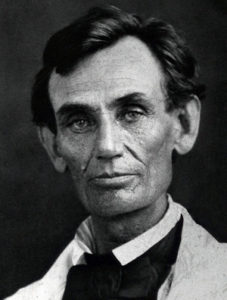Christos Georghiou – Fotolia.com_ WARNING – THIS POST HAS POSSIBLE TRIGGERS. After a tough week with a lot of down time lost to pain of various sorts – as much mental as physical – I’ve been trying to draw on lessons friends have been sharing with me. They have been describing a deeper sense of […]
Archives for 2008
Lincoln’s Adaptation to Depression
In January 1841, Abraham Lincoln, then a state legislator in Illinois, wrote to his law partner about securing a post for a physician who was then treating him for a nervous disorder called hypochondriasis, or hypo for short, a condition we would call major depression. “I have, within the last few days, been making a […]
Dreams, Depression & Spirituality – 2
Some Rights Reserved by Elena Acin at Flickr Insightful comments by Stephany and Jane are helping me get to another stage in dealing with depression. In a previous post I started wondering if there might be a very different way of imagining and experiencing this illness. Could there be a way of adapting that started […]
Shame and Family Violence
Some years back I took part in a series of group sessions that focused on helping people confront and deal with inner shame that had haunted them since childhood. It was the first group in my experience that got me to interact with other people not just through talk but through dramatic reenactments of past […]
Depression and Imagination
I’ve been looking back at the way I’ve thought about depression and my stance toward dealing with it, and I’ve started to wonder: Could I imagine and adopt in my life a different approach to this illness? What starts me on this track is my encounter with the experiences of so many other thoughtful fellow-sufferers […]
Creativity and Depression – 3
Patrick has written a comment packed with ideas about his responses to depression. I’m especially interested in three points he makes about creativity and imagination. First, he notes that his years of experience of therapy led him to see it as a “misguided enterprise, that of creating and recreating ‘narratives’ to explain events of Mind.” […]

